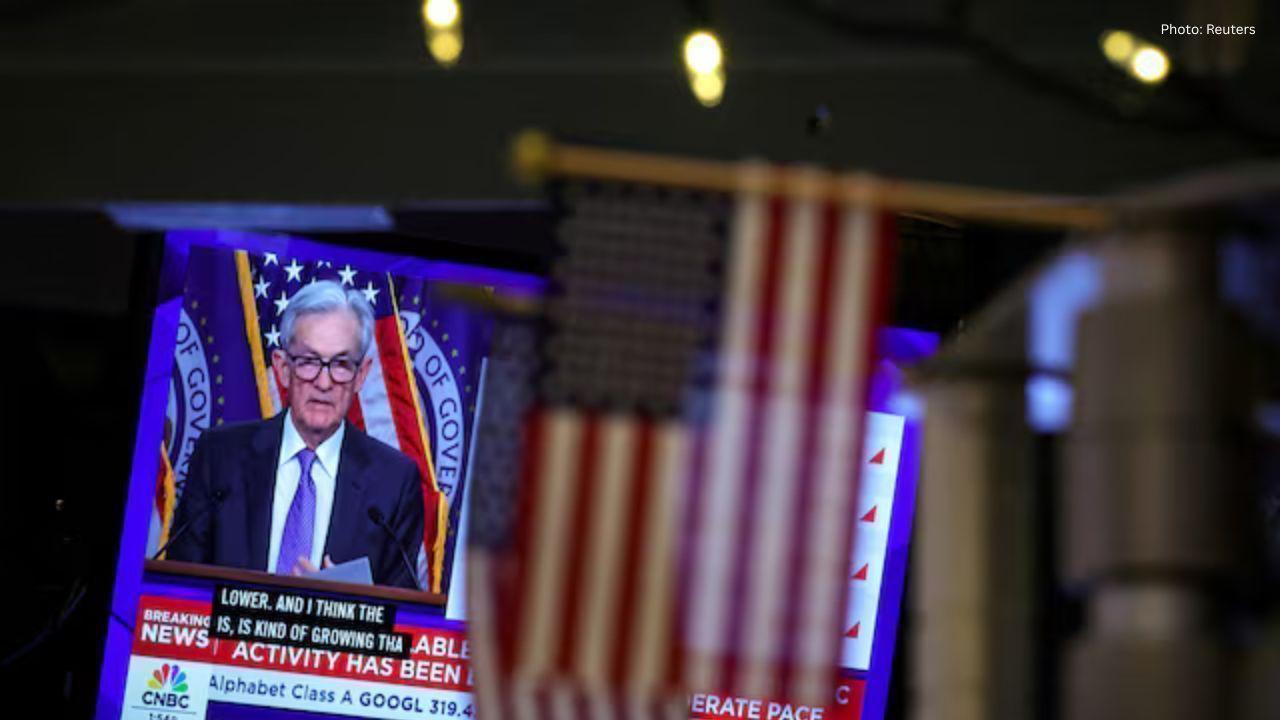You have not yet added any article to your bookmarks!

Join 10k+ people to get notified about new posts, news and tips.
Do not worry we don't spam!

Post by : Anis Farhan
The role of the Chief Financial Officer (CFO) is evolving rapidly in 2025. No longer limited to traditional budgeting and financial oversight, CFOs are increasingly being called upon to understand and anticipate the impact of technology on business performance. From artificial intelligence to blockchain, digital transformation is reshaping how companies operate, compete, and thrive. For financial leaders, this means adapting quickly to stay ahead of disruption—or risk falling behind.
Technology today is no longer confined to IT teams; it has become a boardroom priority. In fact, finance leaders are expected to evaluate how emerging innovations influence cost optimization, investment strategies, compliance, and long-term growth. With these shifts, six key technology trends stand out as critical for CFOs to watch closely in 2025.
Artificial intelligence (AI) is no longer a futuristic buzzword—it’s a present-day necessity. From predictive analytics to real-time financial modeling, AI is transforming how companies interpret data and make decisions. CFOs are increasingly using AI to forecast market trends, optimize working capital, and detect anomalies that could signal fraud or inefficiencies.
In 2025, AI has moved beyond task automation into strategic support, giving CFOs deeper insights into customer behavior, supply chain performance, and global risks. Finance leaders who integrate AI-driven tools into their workflows can expect sharper forecasting accuracy and faster response times to changing market conditions. Those who hesitate risk being outpaced by competitors with smarter, data-backed strategies.
Quantum computing, once confined to labs, is edging closer to practical applications. For CFOs, this presents both promise and peril. On one hand, quantum systems could eventually solve complex financial simulations in seconds—unlocking unprecedented capabilities in risk management, portfolio optimization, and logistics planning.
On the other hand, quantum threats to cybersecurity are rising. Traditional encryption methods could become obsolete in the near future, exposing sensitive financial data to new vulnerabilities. In 2025, forward-thinking CFOs are already in discussions with CIOs and CISOs to explore post-quantum cryptography and assess investments needed to protect corporate assets. Ignoring this risk could prove costly in a digital-first economy.
Beyond traditional AI, generative AI is reshaping business operations in ways CFOs cannot ignore. In finance functions, generative tools are being used to draft reports, automate reconciliations, and even simulate various economic scenarios for board presentations.
This isn’t just about speed—it’s about freeing up financial teams to focus on high-value strategic work. In 2025, companies adopting generative AI are seeing measurable productivity gains and cost reductions. CFOs who strategically deploy these tools are better positioned to optimize operations, while those who dismiss them risk inefficiencies that eat into margins.
Environmental, Social, and Governance (ESG) considerations are no longer optional. Investors, regulators, and consumers increasingly demand transparency in how companies measure and report their environmental impact. For CFOs, this means adopting new technologies that can track carbon footprints, monitor energy efficiency, and verify supply chain compliance.
Green finance technologies are helping organizations make data-driven sustainability decisions, from renewable energy credits to climate-risk modeling. In 2025, CFOs who fail to integrate sustainability tracking into financial reporting could face regulatory penalties, investor backlash, or even reputational harm. On the flip side, embracing sustainability tech creates opportunities to attract investment and build long-term brand equity.
Blockchain has moved from hype to utility, with applications that go well beyond cryptocurrency. For CFOs, distributed ledger technology offers more transparent, secure, and efficient ways to manage transactions. Tokenization of assets—from real estate to intellectual property—is making previously illiquid investments more accessible and tradable.
By 2025, multinational corporations are using blockchain to streamline cross-border payments, improve supply chain visibility, and cut costs in trade finance. CFOs who stay ahead of blockchain adoption can unlock efficiencies while improving trust with partners and regulators. Those who ignore it risk operating with slower, more expensive systems in a marketplace that is quickly modernizing.
As companies grow more digital, cyber risks are no longer an IT problem—they are a financial problem. Data breaches, ransomware, and digital fraud can drain millions from corporate balance sheets while damaging stakeholder trust. In 2025, CFOs are expected to evaluate cyber risk not only as a compliance issue but also as a strategic financial risk.
Building digital trust requires ongoing investment in secure systems, employee training, and compliance with evolving regulations. CFOs who prioritize cybersecurity see reduced risk exposure and stronger investor confidence. Those who view it as a secondary concern may find themselves vulnerable to financial shocks that could have been avoided.
The rapid pace of technological innovation means CFOs cannot afford to be reactive. Instead, they must act as strategic leaders, guiding their organizations through digital transformation with a focus on financial resilience. Whether it’s embracing AI, preparing for quantum risks, or building sustainability into balance sheets, today’s CFO must bridge finance and technology like never before.
CFOs who adapt will not only safeguard their organizations but also position them for growth in an increasingly digital economy. Those who fail to act may discover too late that the cost of inaction far outweighs the cost of transformation.
This article is intended for informational purposes only. It highlights technology trends in 2025 that may impact financial leaders but does not constitute financial or investment advice. Readers are encouraged to consult relevant experts for tailored strategies.










Rashmika Mandanna, Vijay Deverakonda Set to Marry on Feb 26
Rashmika Mandanna and Vijay Deverakonda are reportedly set to marry on February 26, 2026, in a priva

FIFA Stands by 2026 World Cup Ticket Prices Despite Fan Criticism
FIFA defends the high ticket prices for the 2026 World Cup, introducing a $60 tier to make matches m

Trump Claims He Ended India-Pakistan War, Faces Strong Denial
Donald Trump says he brokered the ceasefire between India and Pakistan and resolved eight wars, but

Two Telangana Women Die in California Road Accident, Families Seek Help
Two Telangana women pursuing Master's in the US died in a tragic California crash. Families urge gov

Ranveer Singh’s Dhurandhar Roars Past ₹1100 Cr Worldwide
Ranveer Singh’s Dhurandhar stays unstoppable in week four, crossing ₹1100 crore globally and overtak

Asian Stocks Surge as Dollar Dips, Silver Hits $80 Amid Rate Cut Hopes
Asian markets rally to six-week highs while silver breaks $80, driven by Federal Reserve rate cut ex